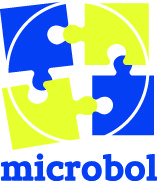 EXPERTS on the MICROBOL project
EXPERTS on the MICROBOL project
The MICROBOL project has gathered together a group of European professionals with expertise and experience in the topics of micro-credentials and/or the Bologna Key Commitments. Their role is to advise the Working Groups.
The experts are:
Anthony F. Camilleri
Anthony F. Camilleri is a tertiary education policy consultant and founder of the Knowledge Innovation Centre. He has nearly 15 years of experience in educational policy, with a focus on Quality Assurance and Innovation in Education. He led the creation of ISO 21001 - Educational Organisation Management Systems, and has authored a major report on blockchain applications for education. His current focus is creating a European standards and technology infrastructure for recording learning digitally. This encompasses research on policy implications of micro-credentials, standardisation work for digitisation of the diploma supplement and consultancy with the Europass project and the European Blockchain Partnership on technological solutions. In Autumn 2019, he also pioneered the first European Micro-Credentials Masterclass in Slovenia.
Frederik de Decker
Frederik is currently the Head of the International Relations Office at Ghent University, the institution he graduated from and where he started his professional career in internationalisation more than 20 years ago, triggered by his own study abroad experiences in The Netherlands and Poland. Previously he had different responsibilities related to internationalisation in various Flemish HEI’s including as Head of the Office for educational development and internationalisation at University College Arteveldehogeschool. From this post he was seconded from 2006 to 2014 to the umbrella organisation Ghent University Association as senior education advisor, advising the board in various educational policy matters.
He participates regularly as an expert in international projects, mainly dealing with internationalisation, educational development, qualifications frameworks and quality assurance. Topics he frequently addresses as an (invited) speaker at conferences and publishes regularly about. He also chairs and participates in various advisory boards re. these themes at the Flemish level, e.g. the Working Group on Internationalisation of the Flemish Education Council (Council for Higher Education). His special interest is the concept of (international/intercultural) learning outcomes/competences.
Ann Katherine Isaacs
Kathy has been involved in ECTS since its very beginning, with the Pilot Project in 1989. Professor of Early Modern History at the University of Pisa, she has been deeply involved the Tuning Process around the world (Europe, Latin America, Canada, USA, Russia, Central Asia) and China; she is ECTS/DS counsellor and Bologna expert; she received the Erasmus Gold Award for Innovation and Creativity in 2008, and a Doctorate honoris causa from the University of Latvia, Riga, for her contributions to the European Higher Education Area and the European Research Area. She designed and coordinated the European History Networks CLIOHnet and CLIOHRES from 1999 to 2012. At present she coordinates the History Subject Area Group of CALOHe2, the latest project in the Tuning sphere, dedicated to creating Qualifications Assessment Frameworks for various disciplinary areas. She designed and coordinated the large-scale Tempus project to build a Central Asian Higher Education Area. She is Erasmus+ Ambassador for Italy; and expert for the European Commission on the implementation of the Erasmus Charter for Higher Education (ECHE).
From 1 July 2018, and until November 2020, she is Vice-Chair of the Bologna Follow Up Group of the European Higher Education Area. She is Co-Chair of the BFUG‘s Coordination Group on Global Policy Dialogue; member of the BFUG’s Bologna Implementation Group; and Chair of the Drafting Committees for the Ministerial Communiqué to be agreed by the EHEA Ministers who will meet in Rome in 2020, and for the Statement to be agreed by the participants in the Global Policy Forum to be held in conjunction with it.
George Ubachs
George Ubachs is the Managing Director of EADTU, the European Association of Distance Teaching Universities. EADTU is Europe’s institutional association of leading universities in online, open and flexible higher education, and is at the heart of the modernisation agenda of European universities.
George Ubachs is coordinator of international academic cooperation networks on networked curricula, virtual mobility, lifelong learning, artificial Intelligence in education and the E-xcellence movement on quality assurance in online, open and flexible education. In this position, EADTU is leading the ICDE-UNESCO focal point for QA in online education for Europe. He is further coordinator of the European MOOC Consortium (EMC), representing the Common Microcredential Framework (CMF). EADTU has been very actively involved in different projects in the field of microcredentials during recent years.
Peter van der Hijden
Peter is an independent higher education strategy advisor of Dutch nationality living in Brussels. He has worked 23 years for the European Commission (Education, Transport, Research) where he became Head of Sector Higher Education Policy and contributed to the Erasmus programme, the Bologna process, Horizon and ERA. He now successfully supports European Universities and promotes micro-credentials. Peter studied law at Maastricht University where he started his career as vice-registrar and policy officer for education and research.

